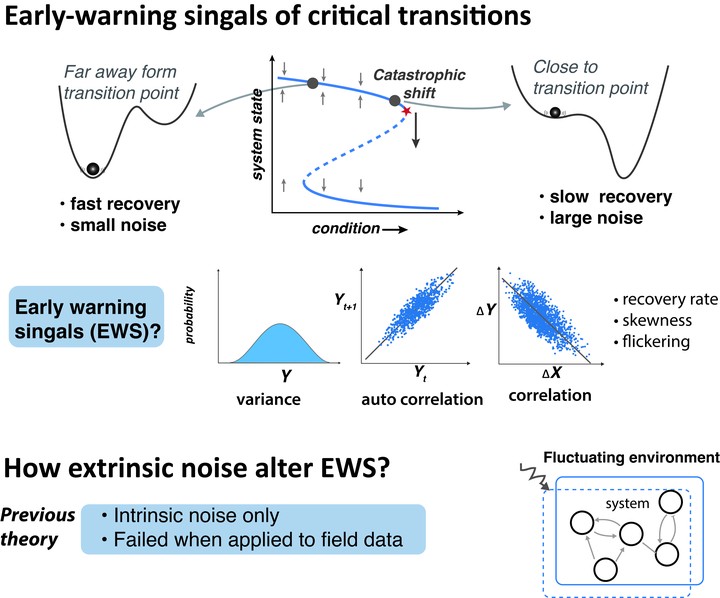Early-warning signals of critical transition - effect of extrinsic noise

Critical transition happens in a dynamical system when it is driven passing a tipping point, often caused by changes of the internal and/or external conditions. Such transitions, often catastrophic and without obvious signs before happening, are widely observed in natural systems. Predicting and averting critical transitions has long been a goal due to its obvious importance. However, it is difficult due to the lack of information about the underlying mechanistic details. Based on generic properties of dynamical systems near bifurcation points, recent studies have proposed that some indicative signs termed the early-warning signals (EWSs) should precede critical transitions, such as rising variance, auto correlation coefficient and skewness of dynamical variables. While theoretically important and interesting, these theories often fail to explain real data. We noticed that previous theory relies on the assumption of small “thermally” controlled intrinsic noise (IN) of the system. Yet, the pervasive environmental fluctuation or extrinsic noise (EN) has largely been ignored.
This aims to extend previous theory to a more general and realistic situation and investigate how the extrinsic noise affects the behavior of EWSs. Our results suggest that EN can dramatically diminish EWSs, and this effect increases with the magnitude and correlation time scale of the EN. EN may also result in false alarms of critical transitions, which suggests the necessity of EN evaluation in practical applications of EWSs. Our theoretical framework also lends itself to describe the stationary stochastic behaviour of mesoscopic systems with various sources of noise. As such, this paper should be of general interest to readers in a broad spectrum of research areas.
S. Qin and C. Tang, “ Early-warning signals of critical transition: Effect of extrinsic noise”, Physical Review E, 97, 032406 (2018).